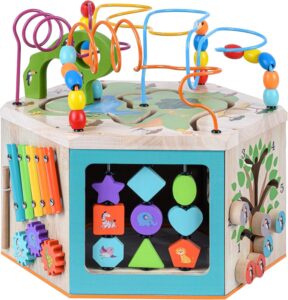
General Parenting Tips for Parents with Young Children
Parenting is a huge responsibility that requires patience, love, and deep understanding to raise healthy, intelligent, and well-mannered children.
Every child is unique and develops at their own pace, so it is essential for parents to provide a nurturing environment that fosters growth and emotional well-being. Below are some essential parenting tips that can help you raise happy, confident, and well-adjusted children.https://youtu.be/1EIkQgE7cow?si=4evHM_OijMBEESuo
1. Show Love and Care
- Children need constant love to feel safe, secure, and confident. Love and affection lay the foundation for emotional development.
- Show affection through hugs, kisses, and kind words. A simple “I love you” can go a long way in making a child feel valued.
- Spend quality time with your child, whether it’s reading a book, playing a game, or having a heartfelt conversation. This strengthens your bond and makes them feel special.
- Be present in their lives. Avoid distractions like phones or work when spending time with them, so they know they have your full attention.https://muunmedia.com/
2. Maintain Good Communication
- Listen to your children so they feel valued and respected. This helps build trust and encourages them to open up about their feelings.
- Engage in meaningful conversations to make them feel comfortable and understood. Encourage them to express their thoughts and emotions without fear of judgment.
- Ask open-ended questions like “How was your day?” or “What was the best part of your day?” to encourage deeper conversations.
- Validate their feelings. Even if their worries seem small, acknowledging them teaches empathy and emotional intelligence.
3. Teach and Guide Positively
- Teach your children good manners, such as greeting others politely, saying thank you, and respecting elders. These habits shape their social interactions.
- Play with them regularly to enhance their cognitive, social, and emotional skills. Playtime is not just fun; it helps develop creativity and problem-solving abilities.
- Help them understand the consequences of their actions in a calm and constructive way. Instead of yelling, explain why certain behaviors are unacceptable and suggest alternatives.
- Use positive reinforcement. Praise and reward good behavior instead of only focusing on mistakes. Encouraging words boost confidence and self-esteem.
4. Set Rules and Boundaries
- Establish clear rules and expectations so they understand right from wrong. Children thrive in structured environments where boundaries are well-defined.
- Be consistent with discipline but remain patient and respectful. Inconsistent rules can confuse children and lead to misbehavior.
- Correct their mistakes with guidance instead of harsh punishment. Teach them why certain actions are wrong and how to make better choices.
- Lead by example. If you want them to be respectful and disciplined, practice those behaviors yourself.
5. Take Care of Their Health
- Ensure they eat a balanced diet with fruits, vegetables, proteins, and whole grains. Good nutrition supports physical and mental development.
- Set a proper sleep schedule to allow enough rest. Lack of sleep can lead to irritability and difficulty concentrating.
- Encourage physical activities such as outdoor play, sports, or simple exercises. Staying active is essential for overall health.
- Limit excessive screen time and promote creative play, reading, and social interactions instead.
6. Build Their Self-Confidence
- Encourage self-confidence by praising their efforts and achievements, not just their successes. This helps them develop a growth mindset.
- Avoid comparing them to others; instead, appreciate their unique qualities and strengths. Every child has their own talents and abilities.
- Let them make mistakes and learn from them rather than overprotecting them. Mistakes are essential for learning and growth.
- Support their interests and hobbies. Whether they love art, sports, or music, encouraging their passions fosters self-esteem.
7. Be a Good Role Model
- Children learn by observing, so be the example you want them to follow. Your actions speak louder than words.
- If you want them to be honest, show honesty in your daily life.
- If you want them to be kind and respectful, treat others with kindness and respect.
- Demonstrate problem-solving and emotional regulation skills. Show them how to handle stress and conflicts in a healthy way.
8. Teach Responsibility and Independence
- Give them age-appropriate tasks and responsibilities, like tidying up their toys or helping with simple household chores.
- Teach them how to make decisions and allow them to solve small problems on their own. This fosters independence.
- Encourage them to take ownership of their actions. If they make a mistake, guide them on how to fix it rather than fixing it for them.
9. Create a Safe and Loving Home Environment
- A peaceful and stable home environment helps children feel secure. Avoid conflicts and arguments in front of them.
- Encourage a positive family culture with shared traditions, routines, and special moments.
- Keep them away from harmful influences and monitor their social interactions.
10. Support Their Education and Learning
- Read to them daily. Reading enhances language skills and cognitive development.
- Encourage curiosity and a love for learning by answering their questions and exploring new topics together.
- Support their schooling by attending parent-teacher meetings and helping with homework when needed.
- Provide educational toys, books, and activities that stimulate their imagination and intellect.
Final Thoughts
Parenting is a long journey that requires patience, dedication, and love. While challenges will arise, remember that no parent is perfect. The most important thing is to provide a nurturing environment where your child feels loved, valued, and supported. By following these parenting tips, you can help your child grow into a happy, healthy, and well-mannered individual. GO TO AMAZON https://amzn.to/4bsbKos



